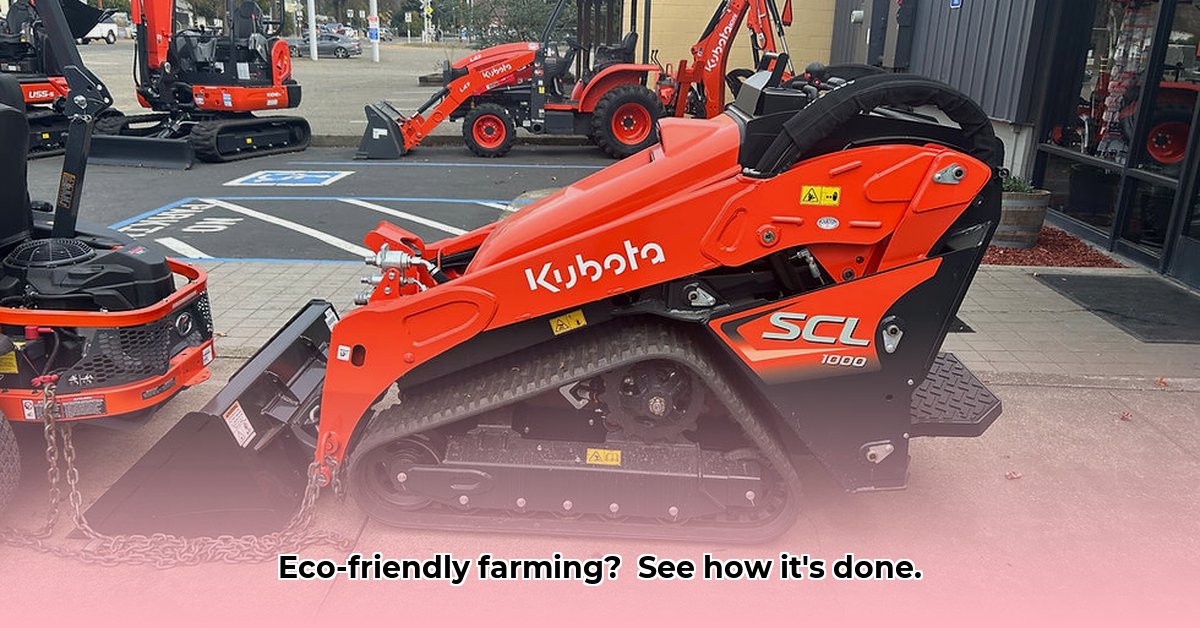
Garton Tractor, a prominent player in the Ukiah agricultural market, is making ambitious claims about its commitment to sustainable farming practices. This article examines the validity of those claims, exploring Garton's sustainability initiatives while acknowledging the significant data gaps that currently hinder a complete assessment. We will analyze their offerings, discuss the need for transparency, and assess the challenges and opportunities associated with adopting these eco-friendly solutions. Learn more about Garton Tractor's operations at their website.
Garton's Sustainable Agriculture Initiatives
Garton Tractor promotes several initiatives aimed at reducing the environmental impact of agriculture. A key focus is their range of tractors equipped with Stage V engines (engines meeting strict European emission standards, dramatically reducing harmful pollutants like NOx and particulate matter). This represents a significant improvement over older models. They are also investigating alternative fuels, potentially including biogas (a renewable energy source derived from the anaerobic digestion of organic matter like agricultural waste), offering a potential pathway to carbon-neutral or even carbon-negative farming operations.
The company also makes bold claims regarding "carbon-negative" tractors. This assertion – that the tractors remove more carbon dioxide from the atmosphere than they emit during operation – requires substantial evidence. Currently, the methodology behind this claim lacks sufficient transparency. Without detailed lifecycle assessments (LCAs – comprehensive analyses of a product's environmental impact throughout its entire lifecycle) and independently verified data, it's impossible to objectively evaluate the accuracy of this assertion.
The Critical Need for Transparency and Data
While Garton's commitment to sustainability is commendable, the lack of readily available, quantifiable data is a major concern. Statements about carbon-negative tractors require rigorous verification. Independent LCAs, tracking emissions throughout the entire manufacturing and operational life of the tractors, are crucial. Without this kind of rigorous data, it’s impossible to assess the true environmental benefits. This lack of transparency is not unique to Garton; the entire agricultural equipment sector needs to improve its data reporting and methodology to enable robust comparisons between different technologies and manufacturers.
Automation and its Environmental Impact: A Complex Picture
Garton is also heavily invested in automation technologies for farming. While increased precision in planting and spraying can reduce the use of pesticides and fertilizers, significantly decreasing environmental impacts, the energy consumption of these automated systems needs thorough investigation. The source of electricity powering these systems, and their overall carbon footprint during manufacturing and operation, must be transparently assessed. Again, detailed LCAs would be invaluable in determining the net environmental impact. Does increased efficiency outweigh the energy costs of automation? Further research is needed.
Challenges and Opportunities for Adoption
The transition to sustainable agricultural practices faces significant hurdles. The high initial cost of new equipment is a considerable barrier for many farmers. Furthermore, farmers require comprehensive training and support to effectively utilize these advanced technologies. Government subsidies and targeted support programs could incentivize adoption and help overcome this financial barrier to entry. Furthermore, ongoing research and development are essential to create even more efficient and environmentally friendly farming solutions.
Conclusion: A Path Forward Through Transparency
Garton Tractor's efforts toward sustainable agriculture are a step in the right direction, but the lack of transparent, verifiable data severely limits the ability to assess their true environmental impact. Independent verification of their claims, particularly regarding "carbon-negative" tractors, is urgently needed. Robust LCAs, along with greater industry-wide transparency, are crucial for building trust and facilitating informed decision-making by farmers and consumers. The future of sustainable agriculture depends on a cooperative effort between manufacturers, researchers, and policymakers to develop and implement genuinely environmentally efficient solutions.
Actionable Intelligence:
- Demand detailed, independently verified lifecycle assessments (LCAs) for all agricultural equipment.
- Promote government incentives to support farmer adoption of sustainable technologies.
- Encourage collaboration between researchers, manufacturers, and farmers to accelerate innovation in sustainable farming.